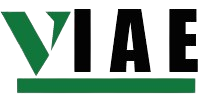1. Understanding the Differences Between Entrepreneur and Manager
- Objective: Differentiate the roles, mindsets, and responsibilities of entrepreneurs and managers.
- Content:
- Definitions and key characteristics of entrepreneurs vs. managers
- Case studies illustrating differences
- Impact of each role on business success
- Activities: Group discussions, role-playing exercises
- Expected Outcomes:
- Ability to clearly distinguish between entrepreneurial and managerial roles
- Understanding of how each role impacts business growth and sustainability
2. Identifying the Innate Entrepreneurial Instincts
- Objective: Recognize and develop key entrepreneurial traits.
- Content:
- Visioning and transformation
- Creativity and drive for innovation
- Risk-taking and opportunity identification
- Activities: Self-assessment quizzes, innovation challenges, scenario analysis
- Expected Outcomes:
- Identification of personal entrepreneurial strengths and areas for development
- Enhanced ability to innovate and take calculated risks
3. Achievement and Motivation Techniques
- Objective: Learn techniques to enhance personal and team motivation.
- Content:
- Goal setting and achievement strategies
- Intrinsic vs. extrinsic motivation
- Techniques for sustaining motivation
- Activities: Workshops, motivational seminars, goal-setting exercises
- Expected Outcomes:
- Ability to set and achieve personal and business goals effectively
- Understanding of how to maintain high levels of motivation in oneself and others
4. Business Planning
- Objective: Develop comprehensive business plans.
- Content:
- Components of a business plan
- Strategic planning process
- Case studies of successful business plans
- Activities: Business plan drafting, peer reviews, feedback sessions
- Expected Outcomes:
- Competence in creating detailed, actionable business plans
- Understanding of strategic planning and its importance in business success
5. Financial Projections and Sensitivity Test
- Objective: Learn to forecast financial performance and assess risks.
- Content:
- Techniques for financial forecasting
- Sensitivity analysis
- Case studies on financial projections
- Activities: Financial modeling workshops, sensitivity test exercises
- Expected Outcomes:
- Ability to create accurate financial projections
- Skill in conducting sensitivity tests to evaluate potential risks
6. Budgeting, Control, and Reporting
- Objective: Master budgeting and financial control mechanisms.
- Content:
- Budget preparation and monitoring
- Financial controls and reporting systems
- Case studies on effective budgeting
- Activities: Budget preparation exercises, financial report analysis
- Expected Outcomes:
- Proficiency in preparing and monitoring budgets
- Understanding of financial control mechanisms and reporting requirements
7. Turning Strategy into Action
- Objective: Implement business strategies effectively.
- Content:
- Strategic action planning
- Execution frameworks
- Monitoring and evaluation techniques
- Activities: Strategy implementation projects, real-world case studies
- Expected Outcomes:
- Ability to translate strategic plans into actionable steps
- Skill in monitoring and evaluating the effectiveness of implemented strategies
8. Taxation and Legal Formalities
- Objective: Understand legal and tax requirements for businesses.
- Content:
- Taxation fundamentals for businesses
- Legal formalities and compliance
- Case studies on tax and legal issues
- Activities: Legal compliance workshops, tax planning exercises
- Expected Outcomes:
- Knowledge of tax obligations and legal compliance requirements for businesses
- Ability to navigate and manage legal formalities effectively
9. Types of Legal Status for Corporate Entities
- Objective: Learn different legal structures for businesses.
- Content:
- Overview of legal statuses (e.g., sole proprietorship, partnership, corporation)
- Advantages and disadvantages of each type
- Legal requirements for establishment
- Activities: Legal status comparison exercises, case studies
- Expected Outcomes:
- Understanding of different legal structures and their implications
- Ability to choose the appropriate legal status for a business
10. Pitching for Investors and Fund Acquisition
- Objective: Develop skills for pitching to investors and securing funding.
- Content:
- Crafting effective pitch decks
- Investor presentation techniques
- Fund acquisition strategies
- Activities: Pitching workshops, mock presentations, feedback sessions
- Expected Outcomes:
- Proficiency in creating and delivering compelling pitches to investors
- Understanding of various strategies for acquiring funding
11. Various Support Financial Systems
- Objective: Explore financial support systems available for businesses.
- Content:
- Overview of financial support systems (e.g., grants, loans, venture capital)
- Accessing financial support
- Case studies on financial support utilization
- Activities: Research projects, financial support application exercises
- Expected Outcomes:
- Knowledge of different financial support options
- Ability to effectively access and utilize financial support systems
12. Marketing and Placement
- Objective: Learn effective marketing strategies and placement techniques.
- Content:
- Marketing fundamentals
- Branding and positioning
- Sales and distribution channels
- Activities: Marketing plan development, branding workshops
- Expected Outcomes:
- Competence in creating and executing marketing plans
- Understanding of branding and effective placement strategies
13. Operations Techniques
- Objective: Understand operations management in business.
- Content:
- Operations planning and control
- Supply chain management
- Quality control techniques
- Activities: Operations management simulations, case studies
- Expected Outcomes:
- Proficiency in planning and controlling business operations
- Skill in managing supply chains and ensuring quality control
14. Enterprise Management & HR
- Objective: Learn effective enterprise management and HR practices.
- Content:
- Organizational structure and design
- HR management techniques
- Leadership and team management
- Activities: HR workshops, leadership training sessions
- Expected Outcomes:
- Understanding of effective organizational design and HR management
- Ability to lead and manage teams successfully
15. Corporate Governance
- Objective: Understand principles of corporate governance.
- Content:
- Overview of corporate governance
- Roles and responsibilities of board members
- Case studies on governance issues
- Activities: Governance policy development, board role-playing exercises
- Expected Outcomes:
- Knowledge of corporate governance principles and practices
- Ability to implement effective governance policies in a business

